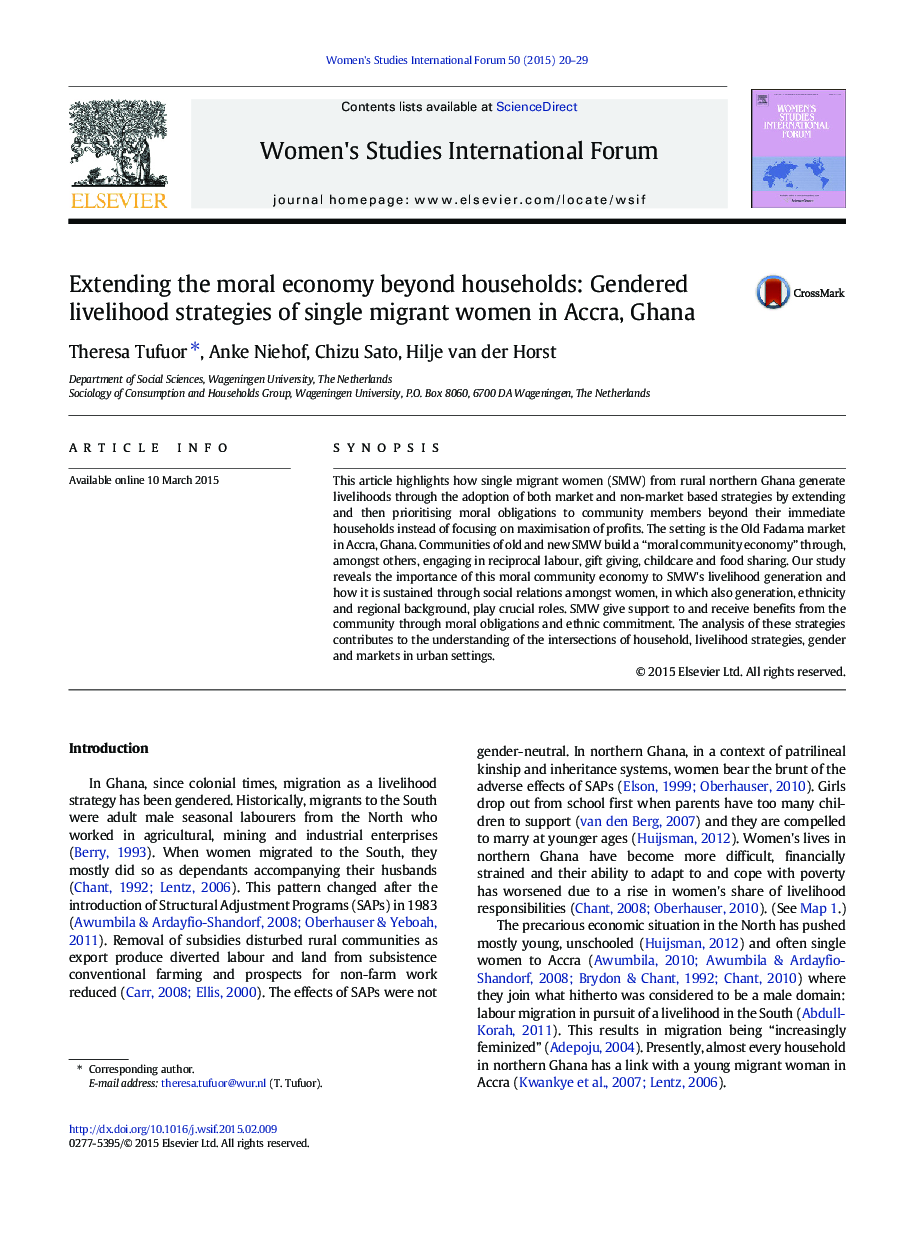| Article ID | Journal | Published Year | Pages | File Type |
|---|---|---|---|---|
| 375940 | Women's Studies International Forum | 2015 | 10 Pages |
•SMW from OF market in Accra deploy both market and non-market based strategies in their livelihood generation.•Supporting Muslim female elders, locally known as Magajias, extend the moral economy beyond their own households.•SMW create family-like relationships (use kinship idiom) to relate to other SMW and Magajias, in particular those of the same ethnic background.•SMW and Magajias in the context of social groupings and communal obligations help develop willingness to commit resources and diversity for livelihood generation.•Moral obligation and ethnic commitment inspire a “moral community economy”.
SynopsisThis article highlights how single migrant women (SMW) from rural northern Ghana generate livelihoods through the adoption of both market and non-market based strategies by extending and then prioritising moral obligations to community members beyond their immediate households instead of focusing on maximisation of profits. The setting is the Old Fadama market in Accra, Ghana. Communities of old and new SMW build a “moral community economy” through, amongst others, engaging in reciprocal labour, gift giving, childcare and food sharing. Our study reveals the importance of this moral community economy to SMW's livelihood generation and how it is sustained through social relations amongst women, in which also generation, ethnicity and regional background, play crucial roles. SMW give support to and receive benefits from the community through moral obligations and ethnic commitment. The analysis of these strategies contributes to the understanding of the intersections of household, livelihood strategies, gender and markets in urban settings.
